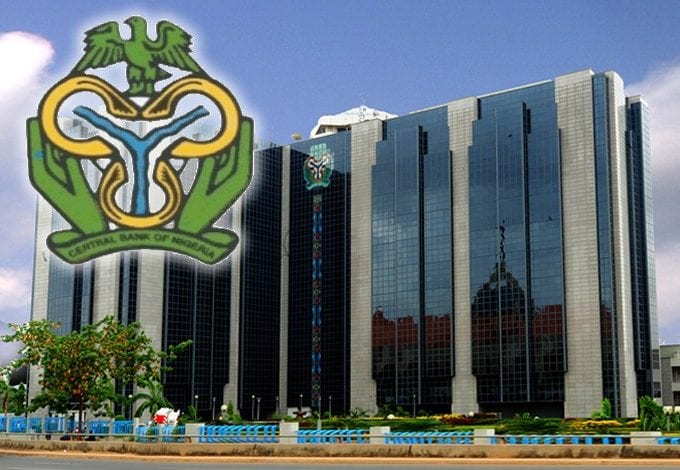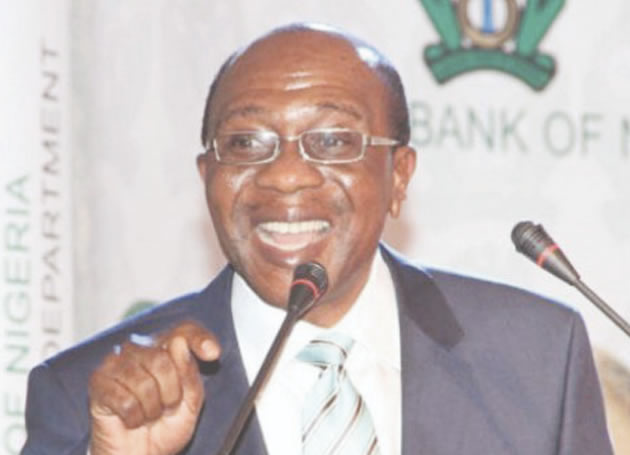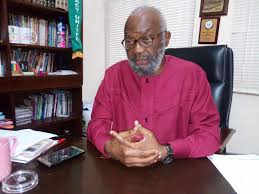BUSINESS
External Reserves Down to Four Months Low at $39.98bn

By Joseph Amah, Abuja
Nigeria’s external reserves have fallen below the $40bn mark to the lowest point in over three months, figures from the Central Bank of Nigeria (CBN) reveal.
The reserves dropped to $39.82bn on February 2, 2022 from $40.
53bn as of December 30, 2021.The country’s external reserves had jumped from $39.
82bn on October 15, 2021, to a high of $41. 83bn on October 29, on the back of Eurobond inflow and the International Monetary Fund’s Special Drawing Right.The country’s external reserves rose by $5.12bn last year from $35.37bn at the end of 2020, according to CBN data.
At the first Monetary Policy Committee meeting this year, the Governor, Central Bank of Nigeria, Godwin Emefiele, said, “Members also noted the continued improvement in the external reserves despite ongoing foreign exchange market pressures.
The reserves stood at $40.2bn as at December 2021.”Emefiele had earlier noted that the external reserves rose to over $41bn in October 2021, supported by demand management measures, Eurobond inflow of $4bn and the IMF’s SDR.
BUSINESS
Digital Bank PalmPay Gets Recognition

Torough David
Digital bank PalmPay has once again secured global recognition, earning a place on CNBC and Statista’s 2025 Top 300 Fintech Companies in the World list.
This marks the second consecutive year the fintech platform has been listed among the world’s most innovative and impactful financial technology firms, placing it alongside global giants such as Revolut, Nubank, and Ant Group.
In a statement on Tuesday, the Founding Chief Marketing Officer at PalmPay, Sofia Zab, described the recognition as a strong validation of the company’s commitment to financial inclusion across emerging markets.
“To be recognised as one of the world’s top fintech companies by CNBC and Statista is a powerful affirmation of our mission to build a more inclusive financial system,” she said.
Zab noted that PalmPay’s strategy combines cutting-edge technology with deep local distribution to meet the needs of underserved communities.
“Through a customer-first mindset, we’ve built Nigeria’s leading neobank,” she added.
PalmPay currently serves over 35 million registered users, processing up to 15 million transactions daily. In Nigeria, its core market, PalmPay operates as a full-service neobank, offering services such as transfers, bill payments, credit, savings, and insurance, all available through its user-friendly mobile app.
The company also maintains a nationwide network of over one million agents and merchant partners and provides POS and API-driven solutions for merchants and enterprise clients.
Group Chief Commercial Officer at PalmPay, Jiapei Yan, said the fintech platform is building a neobanking infrastructure that aligns with the realities of emerging markets.
“We are creating the infrastructure for a connected digital economy where people and businesses can thrive through reliable, inclusive financial tools,” Yan said.
He added that the CNBC and Statista ranking not only affirms PalmPay’s progress but also highlights the scale of opportunity in emerging markets.
PalmPay recently expanded into Tanzania and Bangladesh, using smartphone device financing as a gateway to digital financial services for new users in these regions.
“Our focus remains on closing financial access gaps for everyday consumers and businesses, while expanding the partner ecosystem that fuels our reach and impact,” Zab said.
Earlier this year, PalmPay was also ranked #2 overall and #1 in financial services on the Financial Times Africa’s Fastest-Growing Companies 2025 list. The ranking reflected the company’s rapid scale and market traction, based on revenue growth between 2020 and 2023.
BUSINESS
CBN’s Rates Hold Anticipated, New Strategies Important against Downsides – CPPE

The Centre for the Promotion of Private Enterprise (CPPE) said the decision of the Monetary Policy Committee (MPC) of the Central Bank of Nigeria (CBN) to hold the interest rates was anticipated.
Chief Executive Officer of CPPE, Dr. Muda Yusuf said this in an interview on Wednesday in Lagos.
Yusuf said that although the decisions of the MPC were not surprising, the apex bank and managers of the nation’s economy must evolve additional strategies, including trade policy shifts against inflation.
He was responding to the outcome of the 301st MMPC meeting.
The MPC retained the rates for the third consecutive time, holding the Monetary Policy Rate (MPR) at 27.
5 per cent.The Cash Reserve Ratio (CRR) was retained at 50 percent for deposit money banks and 16 per cent for merchant banks.
It also retained Liquidity Ratio at 30 per cent and the Asymmetric Corridor at +500/-100 basis points around the MPR.
Yusuf said that the outcome was anticipated based on current realities, adding that the decision had both positive and negative consequences for the nation’s economy.
He said it was expected that current rates would be maintained due to CBN’s consistent approach of not cutting rates until inflation significantly moderates.
He said that inspite of marginal deceleration in annual inflation to 22.22 per cent, month-on-month headline, food, and core inflation all increased in June.
According to him, the CBN cited inflationary trends coupled with persistent factors like high energy costs, insecurity, exchange rate volatility and logistics expenses as reasons for its decision.
He stressed the need for more affordable funds to boost economic growth and investment, noting that interest rates exceeding 30 per cent are highly prohibitive.
The CPPE boss, however, said that economic management involved trade-offs.
He said that CBN’s tight monetary stance, characterised by high interest rates, had successfully attracted an inflow of foreign exchange through portfolio investments.
Yusuf said that the influx of forex was a key positive outcome that justified CBN’s decision to maintain monetary tightness, even if it appears to hinder direct investment and growth.
He said that CBN’s decision had several implications, adding that financial instruments will continue to offer attractive returns, benefiting investors in these areas.
Yusuf said that the country needed factors that could bring down the cost of production, distribution, and the cost of importation of critical input for production.
“There are already some actions, we need more effective and impactful actions on insecurity, so that our food production can also be scaled up.
“These are some of the additional things that need to take place on the policy front to complement whatever the monetary policy authorities are doing.
“Clearly, monetary policy alone or monetary policy instruments alone are not sufficient to effectively tackle inflation,” he said.
BUSINESS
IMF Predicts 0.5% GDP Revenue Loss for Nigeria

Torough David, Abuja
The Federal Government may lose as much as 0.5 percent of the country’s Gross Domestic Product in revenue following its decision not to raise the Value Added Tax rate, the International Monetary Fund has disclosed.
In its latest Article IV Consultation Report on Nigeria, the IMF stated that although the recent tax reforms approved by the National Assembly and President Bola Tinubu represent a major step forward in modernising the VAT and Company Income Tax regimes, the choice to maintain the current VAT rate would lead to an immediate revenue shortfall.
“The decision not to raise the VAT rate now is reasonable, given high poverty and food insecurity, and with the cash transfer system to support the most vulnerable households not yet fully rolled out.
However, this will reduce consolidated government revenue by up to ½ per cent of GDP in the authorities’ estimates,” the report noted.While the Federal Government is expected to be largely insulated from the fallout—thanks to expected gains from improved CIT compliance—the blow will be felt most by state and local governments.
According to the Fund, unless alternative financing options are found, subnational governments may be forced to either scale back spending or ramp up their own revenue efforts.
The IMF, however, acknowledged the government’s justification for delaying a VAT hike, particularly at a time of worsening poverty and food insecurity.
With only 5.5 million of the targeted 15 million households reached under the federal cash transfer programme, the Fund noted that raising VAT at this stage could further strain vulnerable households.
Nonetheless, it cautioned that the cost of delaying reform would fall on already stretched public finances, especially at the subnational level.
“Assuming no alternative financing sources, they [states and LGAs] would have to raise additional revenue or reduce spending, which is assumed in the baseline,” the report said.
Despite this challenge, the IMF welcomed the tax reform agenda being driven by the Presidential Committee on Fiscal Policy and Tax Reforms, describing it as critical to reversing Nigeria’s poor revenue-to-GDP ratio, one of the lowest globally.
The reforms aim to boost compliance and enforcement, and the Fund believes they hold “significant medium-term revenue potential” once fully implemented.
Measures include modernising the VAT and CIT frameworks, tightening exemptions, and introducing digital tools to monitor compliance. Total revenue and grants reached 14.4 per cent of GDP in 2024, up from 9.8 per cent in 2023, buoyed by currency depreciation and improved administration.
However, public debt also rose, hitting 52.9 percent of GDP last year, with interest payments consuming 41.1 percent of Federal Government revenue. The IMF advised the government to maintain a neutral fiscal stance in 2025, stressing that revenue shortfalls should not lead to excessive borrowing.
It also urged the authorities to clearly set out a medium-term revenue plan, including timelines for further tax policy changes, to restore investor confidence and ensure policy credibility.
The report stated, “Pre-committing to an implementation timeline for further policy measures in an updated medium-term framework would support fiscal sustainability and provide guidance on available fiscal space for development spending and support for the most vulnerable households.”
Nigeria’s decision not to raise VAT comes at a time of heightened global and domestic uncertainty. Lower oil prices, rising financing costs, and mounting social pressures have narrowed the government’s fiscal space.
The IMF observed that while reforms since 2023—including fuel subsidy removal and the liberalisation of the foreign exchange market—have improved macroeconomic stability, their benefits have yet to trickle down to most Nigerians.
With inflation still elevated at 22.9 per cent as of May 2025, and poverty levels worsening, the government appears to be prioritising stability over revenue acceleration, for now.
However, the IMF warned that the long-term cost of inaction could be higher if reforms stall or if subnational governments struggle to adjust.
In the meantime, the IMF continues to support Nigeria’s reform efforts, including through capacity development and the deployment of a resident advisor to assist with revenue mobilisation strategies.
The Nigeria Economic Summit Group warned that the Federal Government could face revenue shortfalls if it does not increase the value-added tax rate as part of the ongoing tax reform process.
The Chief Executive Officer of NESG, Dr. Tayo Aduloju, made this statement during an interactive media session in Abuja. He emphasised that while reforms in the VAT system are essential, maintaining the current VAT rate without an increase could lead to a significant loss of revenue for the government.
Speaking on the issue, Aduloju said, “Without those rate hikes, it means that the government might lose some revenue.” Aduloju explained that the current tax reform process must strike a balance between simplifying the tax system and increasing the VAT rate to maintain revenue stability.
According to him, simply reducing the number of taxes without adjusting the VAT rate could weaken the government’s revenue base.
| ReplyReply allForwardAdd reaction |























